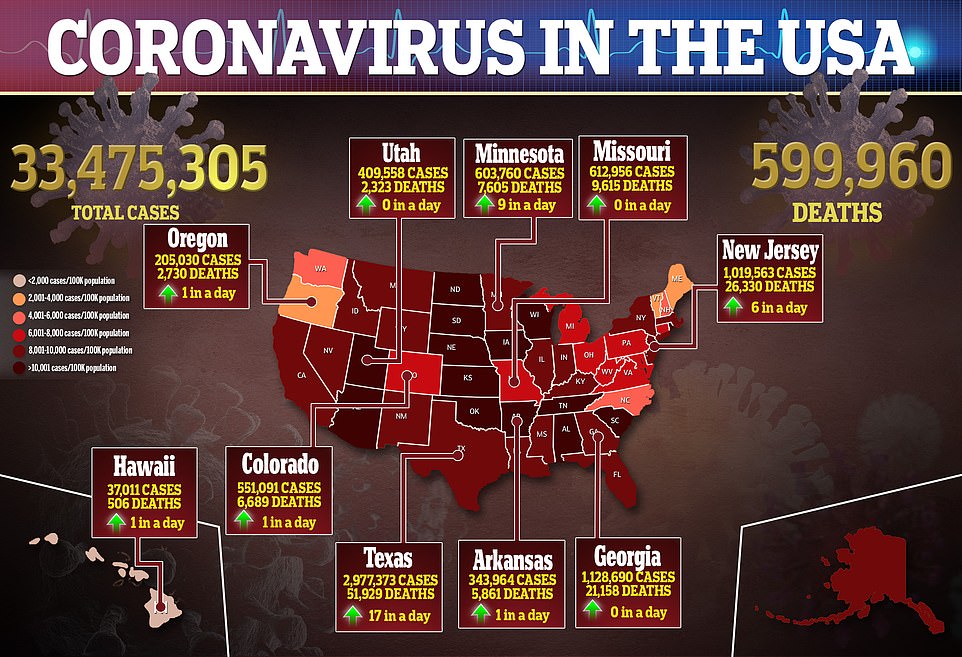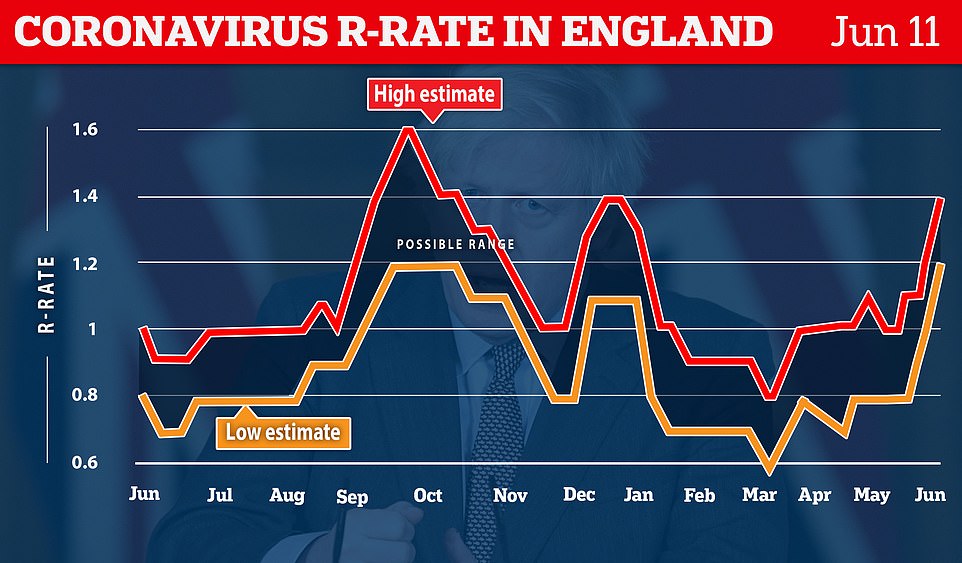CDC will FINALLY label Indian Delta Covid strain as ‘variant of concern’ as the mutant virus scuppers the UK’s reopening plans and leads to fears it could soon swarm the US
- The CDC plans to label the Indian Delta coronavirus variant as a ‘variant of concern’ on Tuesday
- This is an upgrade from ‘variant of interest,’ because of ‘mounting evidence’ that the variant is more contagious than other variants
- It comes after a fully vaccinated resident in Hawaii tested positive for the strain after traveling last month to Nevada
- The variant, known as B.1.617.2, has caused infections in the UK to spike 50% in one week and hospitalizations to rise by 15%
- Nearly one-third of the 42 Britons who have died from the mutant were fully immunized
- Prime Minister Boris Johnson announced on Monday night that the numbers were forcing the end of UK lockdowns to be pushed back by four weeks.
The Indian ‘Delta’ coronavirus variant will finally be classified as a ‘variant of concern’ by the Centers for Disease Control and Prevention (CDC).
On Tuesday, the federal health agency plans to upgrade the mutant from ‘variant of interest,’ because of ‘mounting evidence’ that is more contagious than other variants rather than just suspected to be, first reported by Fox News.
An official told the news organization that the CDC will also announce people that two doses of the Pfizer and Moderna vaccines offer a ‘high degree of protection’ and that people who are not vaccinated ‘are at risk.’
It comes on the heels of the variant, known as B.1.617. being detected for the first time in Hawaii, health officials revealed on Monday.
The individual, who lives on Oahu, was fully vaccinated against COVID-19 and traveled last month to Nevada, where the strain was being reported at the time.
The mutant strain has been wreaking havoc in the UK, causing infections to spike 50 percent in one week and hospitalizations to rise by 15 percent.
A recent report from Public Health England (PHE) found that more than 90 percent of virus cases in the country are now linked to the variant.
Scientists estimate that the Delta variant is between 40 percent and 80 percent transmissible, which has sparked fears that if it has already been detected in multiple U.S. states, a similar outbreak to the one in the UK could be on the horizon.
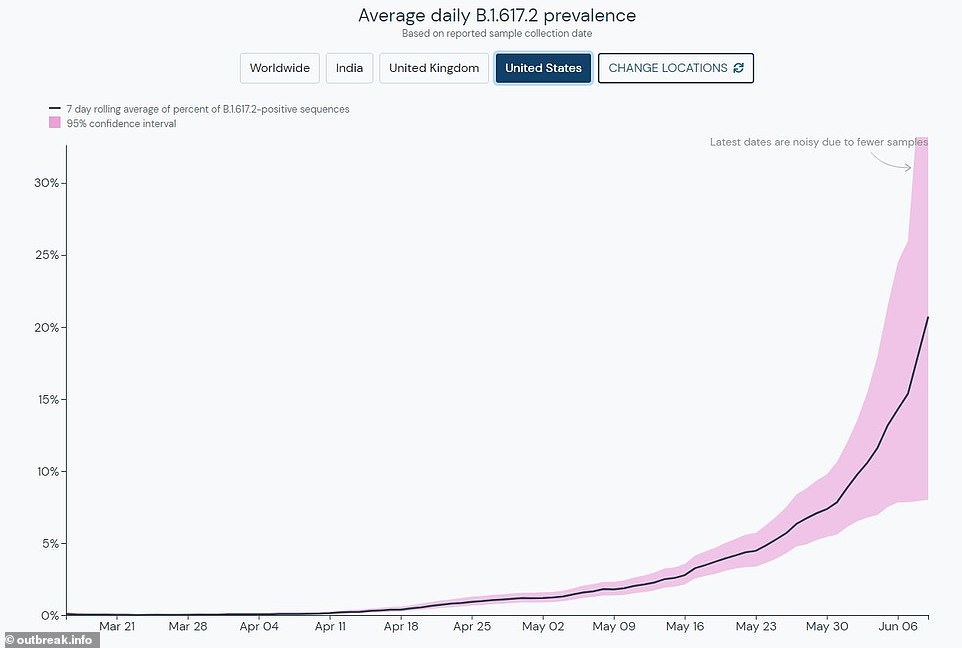
The CDC plans to label the Indian Delta coronavirus variant as a ‘variant of concern’ on Tuesday as infections continue to rise in the U.S.
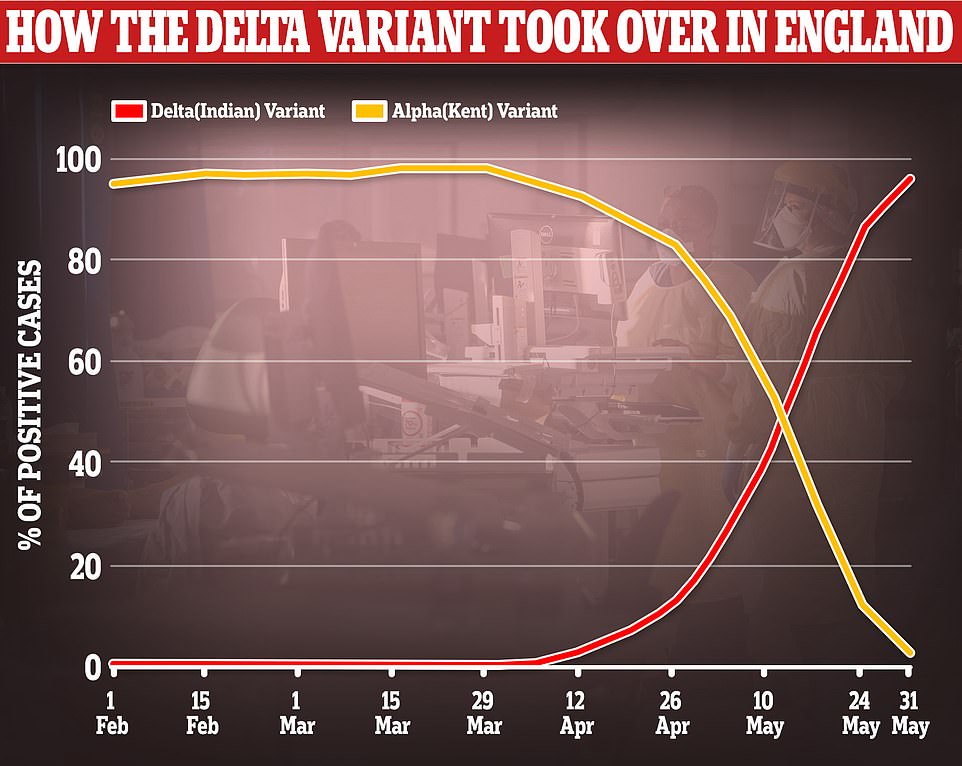
The variant, known as B.1.617.2, has caused infections in the UK to spike 50% in one week and hospitalizations to rise by 15%
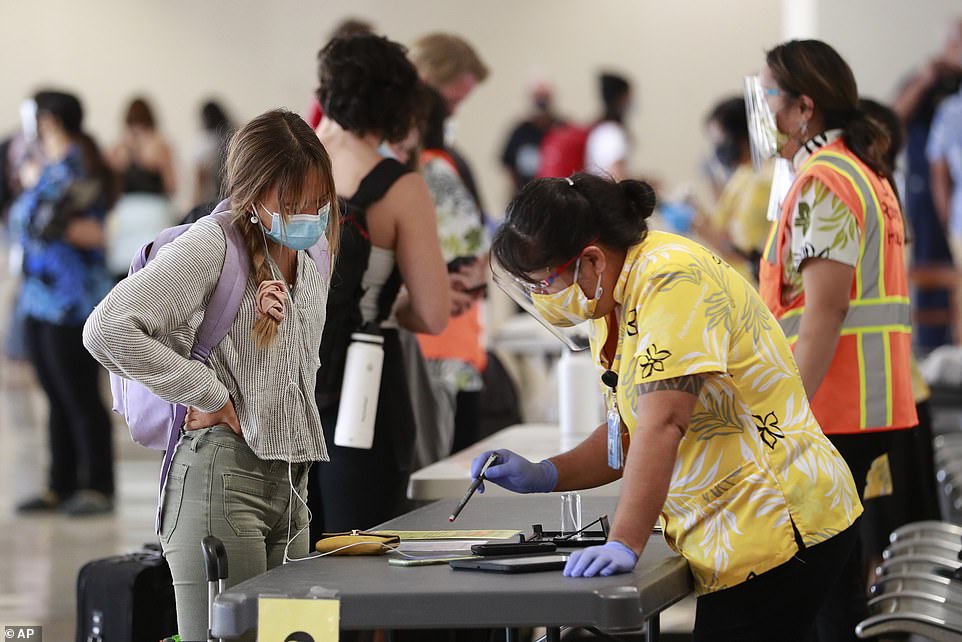
On Monday, a fully vaccinated resident in Hawaii tested positive for the Indian Delta coronavirus variant. Pictured: A traveler is assisted by a state official at the Daniel K. Inouye International Airport in Honolulu, Oahu
The infected person in Hawaii returned to the state after his or her travels with a negative COVID test, but then began experiencing mild symptoms and later tested positive for the virus, according to the state Department of Health (DOH).
Routine genome sequencing was conducted on samples by the State Laboratories Division (SLD) and confirmed to be linked to the variant, known as B.1.617.2.
Dr Elizabeth Char, director of the Hawaii DOH, said the person’s infection is ‘one of those very rare breakthrough cases in which the vaccine did not prevent infection.’
However, evidence has shown vaccines prevent severe illness with the Pfizer vaccine 96 percent effective against hospitalization from the variant and the AstraZeneca vaccine 92 percent effective, a UK study published on Monday found.
The person was not hospitalized and there are no signs that he or she transmitted the virus to household contacts or caused any secondary cases.
‘Early evidence suggests the Delta variant might spread more quickly than other SARS-CoV-2 strains,’ said SLD Administrator Edward Desmond in a statement.
‘There are reports the Delta variant produces a higher rate of severe illness than original COVID-19, but we do not yet have enough evidence to support that conclusion.’
It comes as the U.S. hit a grim milestone and surpassed 600,000 coronavirus deaths on Tuesday, according to data from Johns Hopkins University.
That figure is more than the number of Americans who died during World War I, World War II and the Vietnam War combined, and equal to the yearly cancer toll.
However, health officials are very concerned about the combination of highly infectious variants and unvaccinated Americans as seen in the UK.
Millions of people across England are being currently being urged not travel or hold indoor gatherings to curb the spread of the Indian Delta variant.
The guidance, affecting 3.6 million residents, was released for the Midlands and North West of England, which are seeing above average rates of the mutant strain.
Coronavirus cases have undeniably been rising in the UK, and quickly, in recent weeks after the ending of most lockdown rules on May 17 coincided with the takeover of the Indian variant.
The average number of positive tests announced each day is now above 7,000 for the first time since the tail end of the second wave in March, after 7,490 cases were confirmed yesterday after 8,125 on Friday.
There were 50,017 cases confirmed between Monday and Sunday last week, a 50 per cent spike from 33,496 the week before.
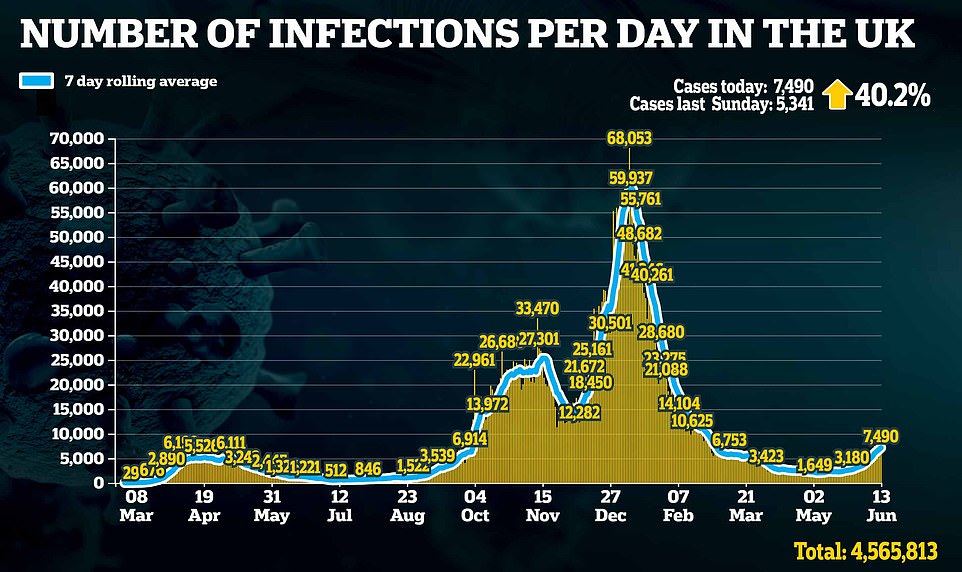
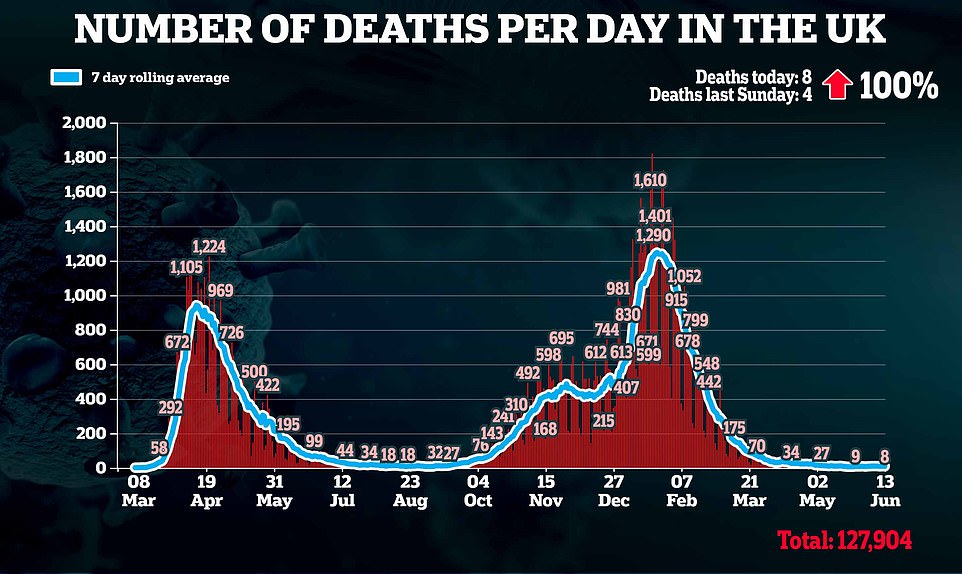
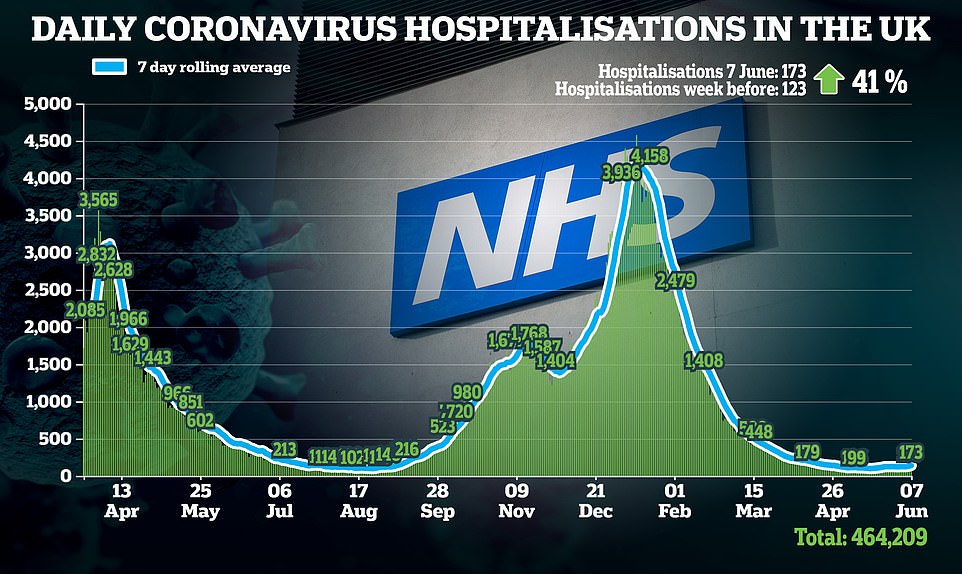
Cases, hospitalizations and deaths are up week over week due to the variant, making up 90% of cases in the UK
Places where infection rates with the Delta variant are comparatively high – Bedfordshire, London, Birmingham, Manchester and East Lancashire – had the highest admission rates in the most recent data but even those, the worst-hit hospitals, still had only five patients admitted on June 6.
They also have the most people in hospital in total, with 44 Covid patients on wards in Manchester University NHS Trust on June 8.
This was the highest in the country and up almost 60 percent in a week from 28 on June 1.
Hospital admissions are creeping up across the UK and more notably in Delta variant hotspots.
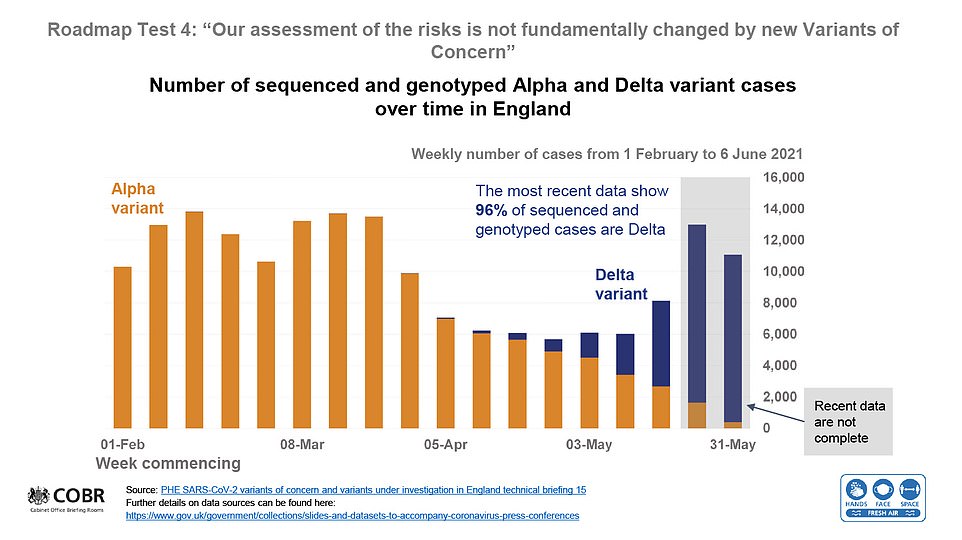
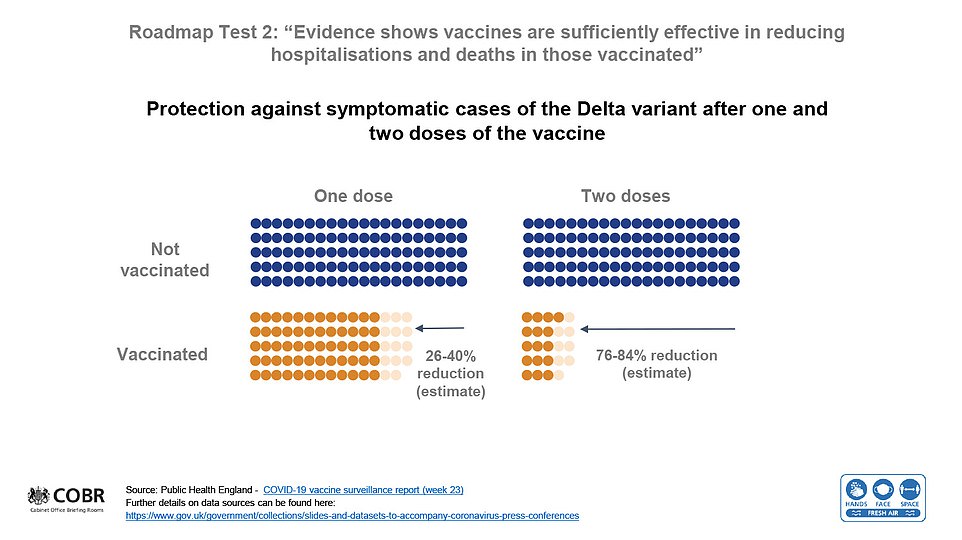
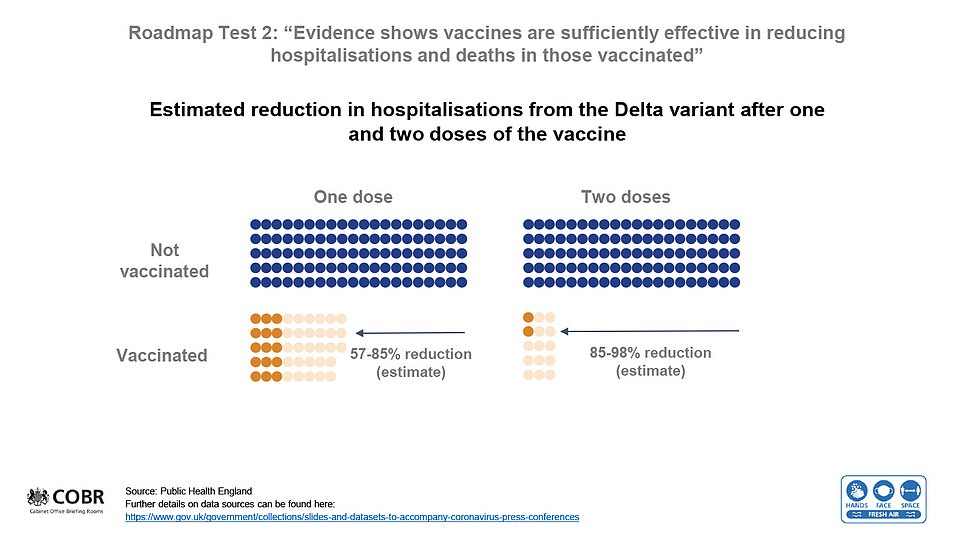
Coronavirus vaccines provide more protection against infection with and hospitalization from the Delta (Indian) variant after two doses compared to one dose
The increase has been significantly slower than cases – there was a 15 percent increase in the most recent week, from 875 new admissions by June 1 to 1,008 in the week to June 8.
However, this is likely an effect of the lag between someone getting infected and then getting sick enough to need hospital treatment.
The spread of the Indian Delta variant – believed to be 60 percent more infectious than the Alpha strain, also known as the Kent variant, and twice as likely to put unvaccinated people in hospital – has led to the UK government pumping the brakes on England’s June 21 Freedom Day.
Prime Minister Boris Johnson announced on Monday night that the numbers were forcing the end of UK lockdowns to be pushed back by four weeks.
Remaining lockdown restrictions are now due to be lifted on July 19, which Johnson promised would be the ‘terminus date.’
